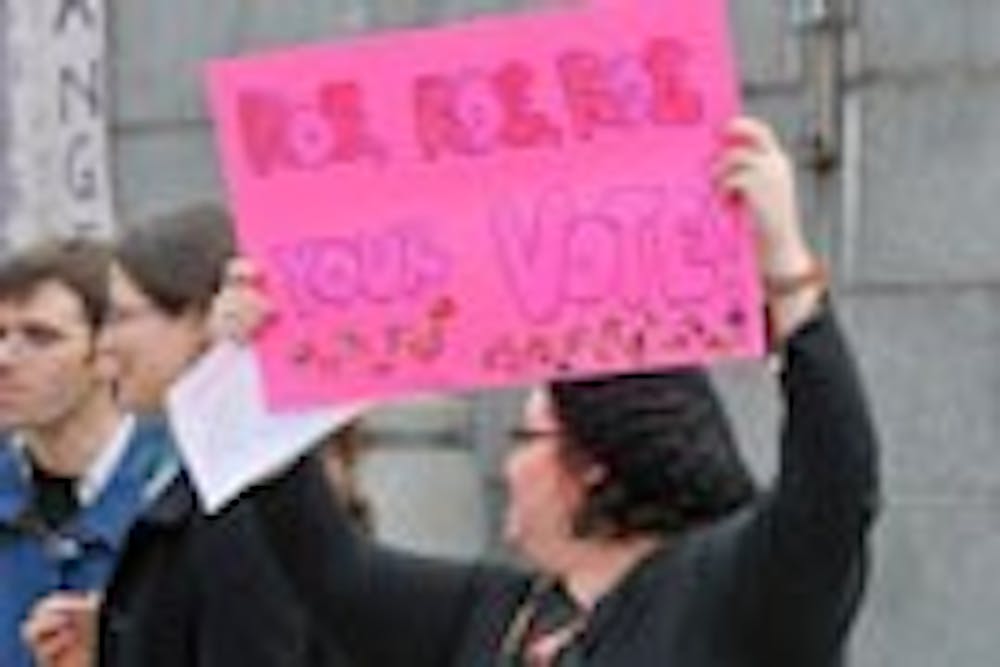
Photo slideshow of a School of Social Policy and Practice rally for women's health in front of City Hall on Wednesday. Related: SP2 students rally for women's health
A small community of School of Social Policy and Practice students raised their voices Wednesday evening in support of a larger community — the underprivileged women of Philadelphia who have been affected by the recent funding cuts to women’s healthcare.
While the protest was sparked by the proposed cuts to Planned Parenthood, the event intentionally avoided campaigning on a single issue and focused on empowering the community, SP2 graduate student Ashley Arens, one of the organizers, said.
The event was held at Dilworth Plaza, located in front of City Hall, in an effort to “reach as much of the Philadelphia public as possible,” SP2 graduate student Anna Krieger said.
The organizers were joined by musicians, speakers and supporters who carried signs with slogans such as “Pro Child, Pro Family, Pro Choice.” Members of the larger Philadelphia community gathered on benches to observe the proceedings, and passerby on their way to the subway stopped to watch.
After being disappointed by a similar rally, which took place on Feb. 17 outside of the Municipal Services Building in Center City, students in the class “Contemporary Social Policy” came together to organize this protest.
The Feb. 17 rally “seemed as if it was leaving out a lot of people,” Arens said.
That rally, which took place during the day, attracted a mainly middle-class and white crowd. Arens said that it was not easily accessible to those most affected by the funding cuts — working-class women of color.
“We thought it deserved more of a rally than it got,” SP2 graduate student Katherine Bisanz said.
“It’s always important to support women’s health and show up,” said Molly Seegers, a Haverford College senior who traveled to Philadelphia for the protest.
Though this rally was one isolated event in support of women’s health, speaker Carly Goldberg, an SP2 doctoral student who helps teach “Contemporary Social Policy,” advocated in her address to the crowd of about 40 that efforts like these need to happen continually.
Among her “top 10 reasons for caring about women’s health all year long” were that “women must be able to access healthcare without fear of violence or intimidation,” and that “healthcare is a basic human right, not a privilege, regardless or race, religion or sexual preference.”
“Women are more adversely affected by poverty in general,” said Taylor Hendricks, who identified herself as a member of the concerned community. She added that factors such as race and socioeconomic level only exacerbate the negative effects of government policies like the women’s health funding cuts.
The rally is a “positive example that students feel that they can express their concerns about inequality and injustice and, more importantly, that they will be supported,” Caroline Wong, associate director of the School of Social Policy and Practice, wrote in an e-mail.
The Daily Pennsylvanian is an independent, student-run newspaper. Please consider making a donation to support the coverage that shapes the University. Your generosity ensures a future of strong journalism at Penn.
DonatePlease note All comments are eligible for publication in The Daily Pennsylvanian.








